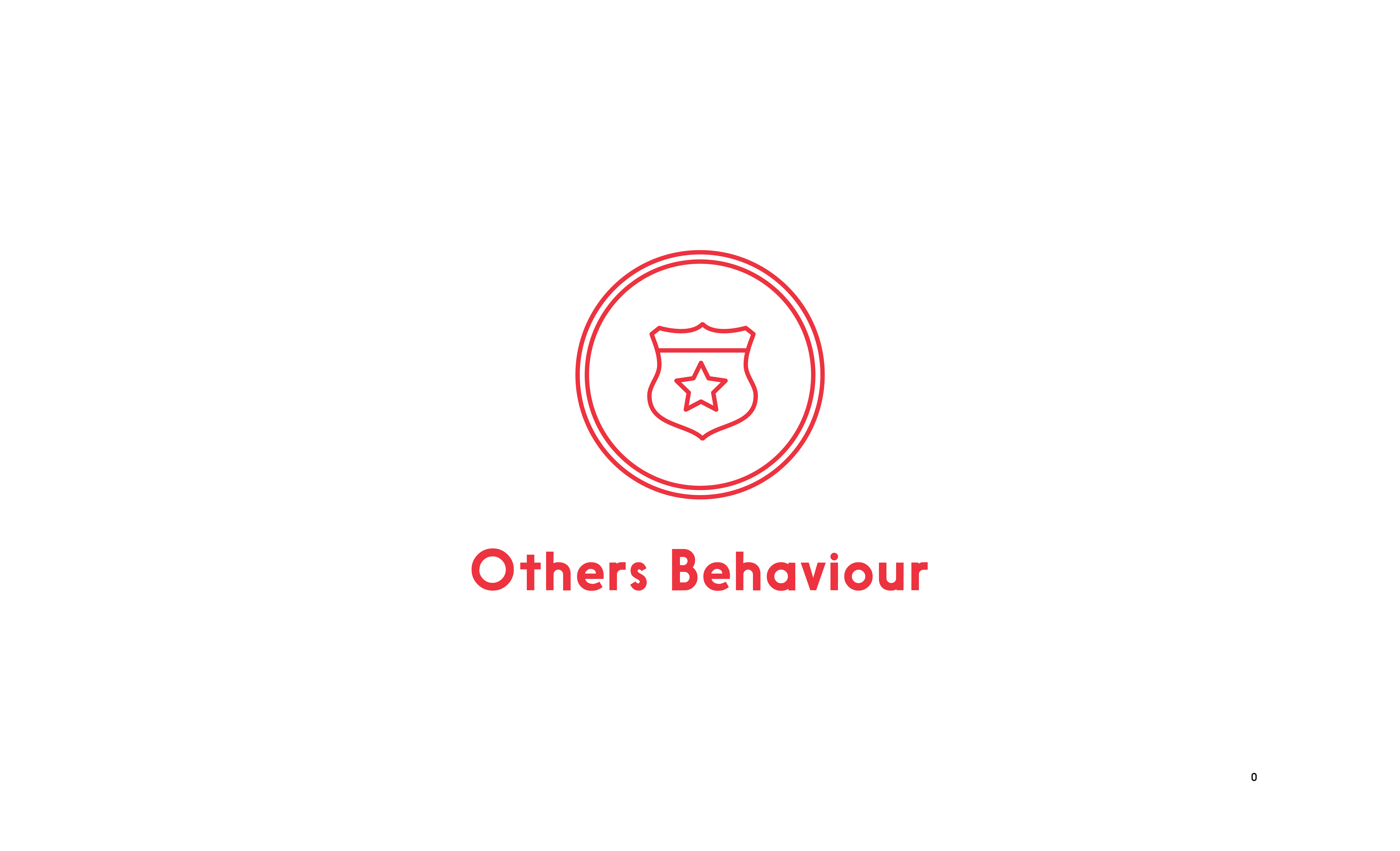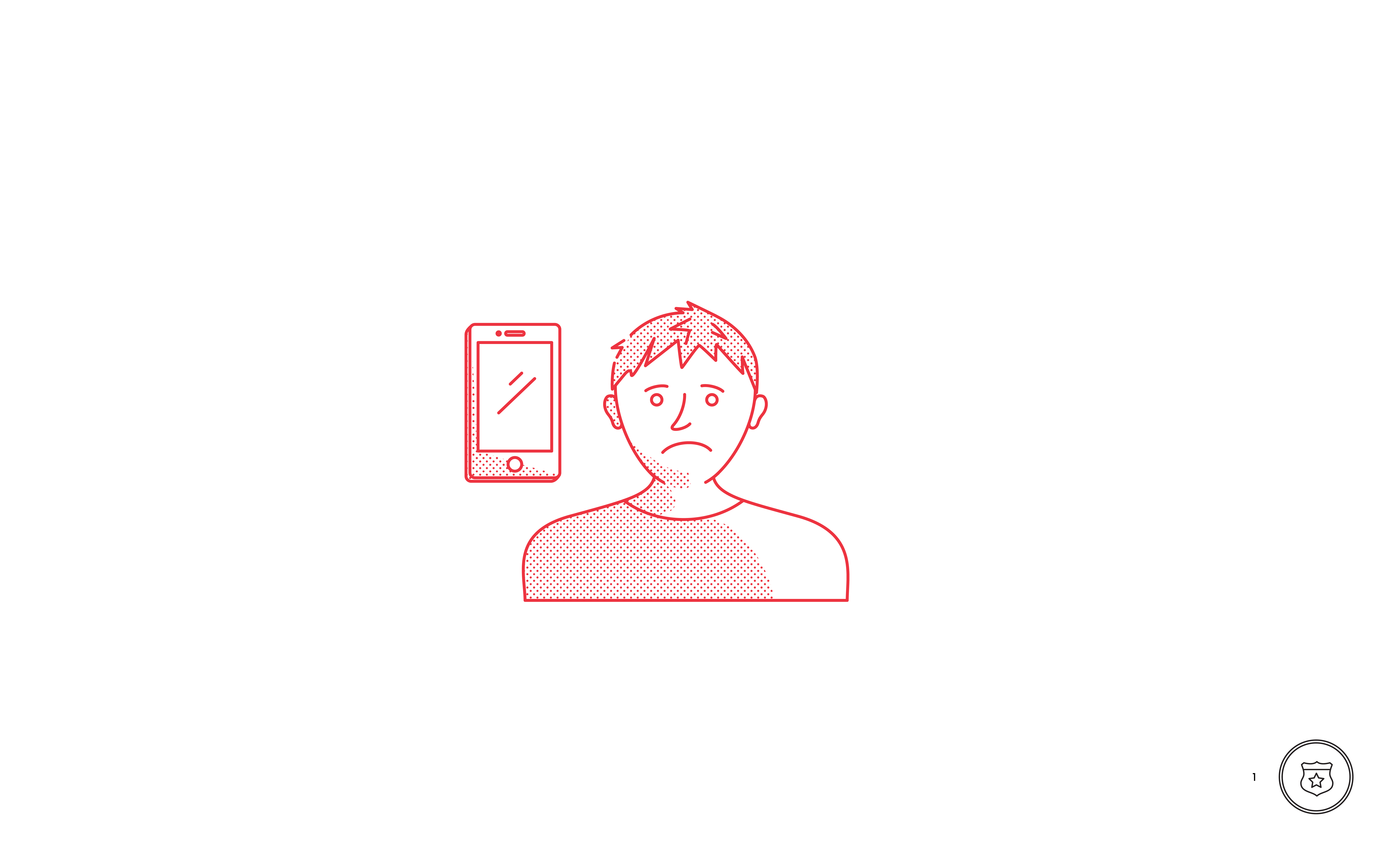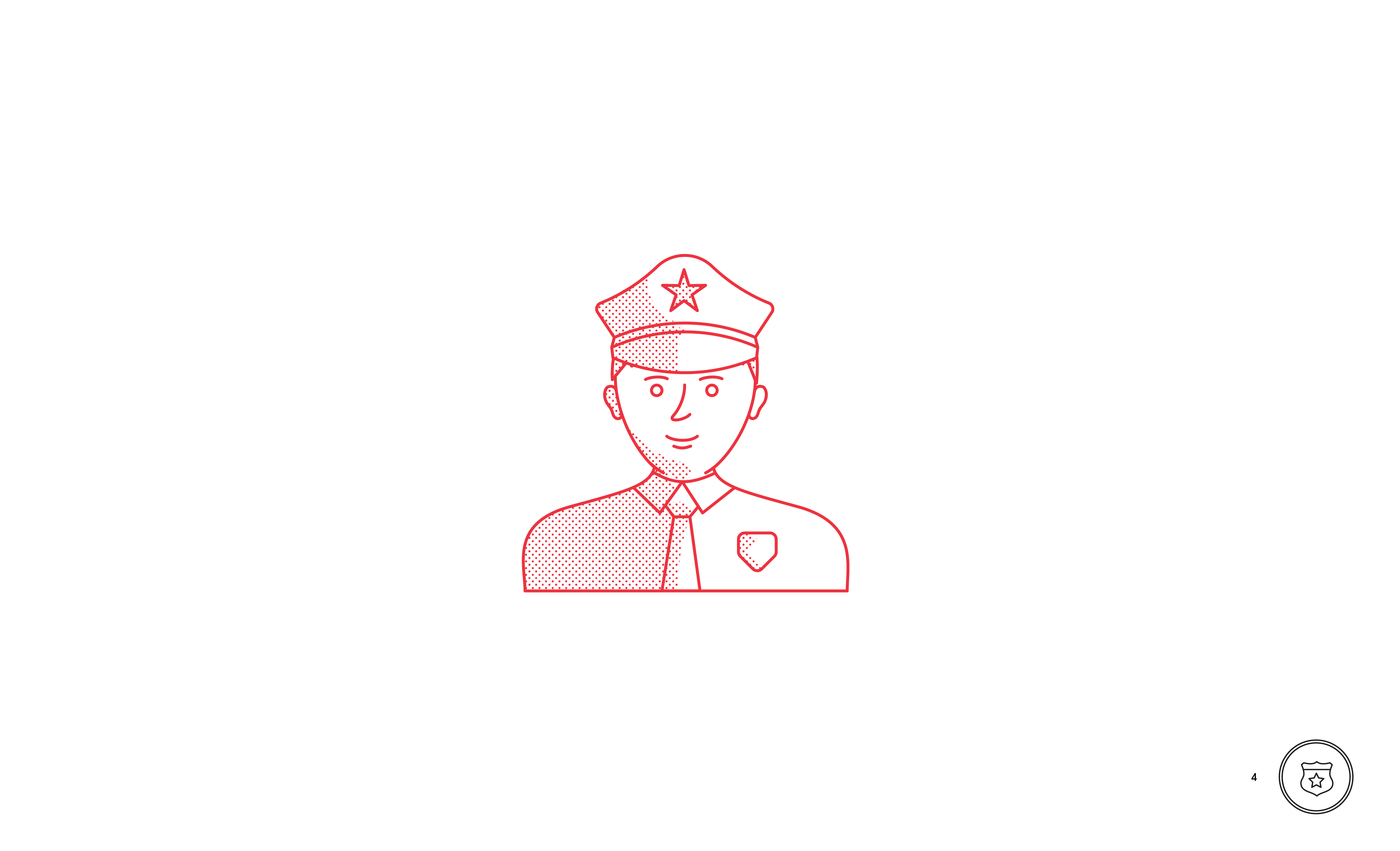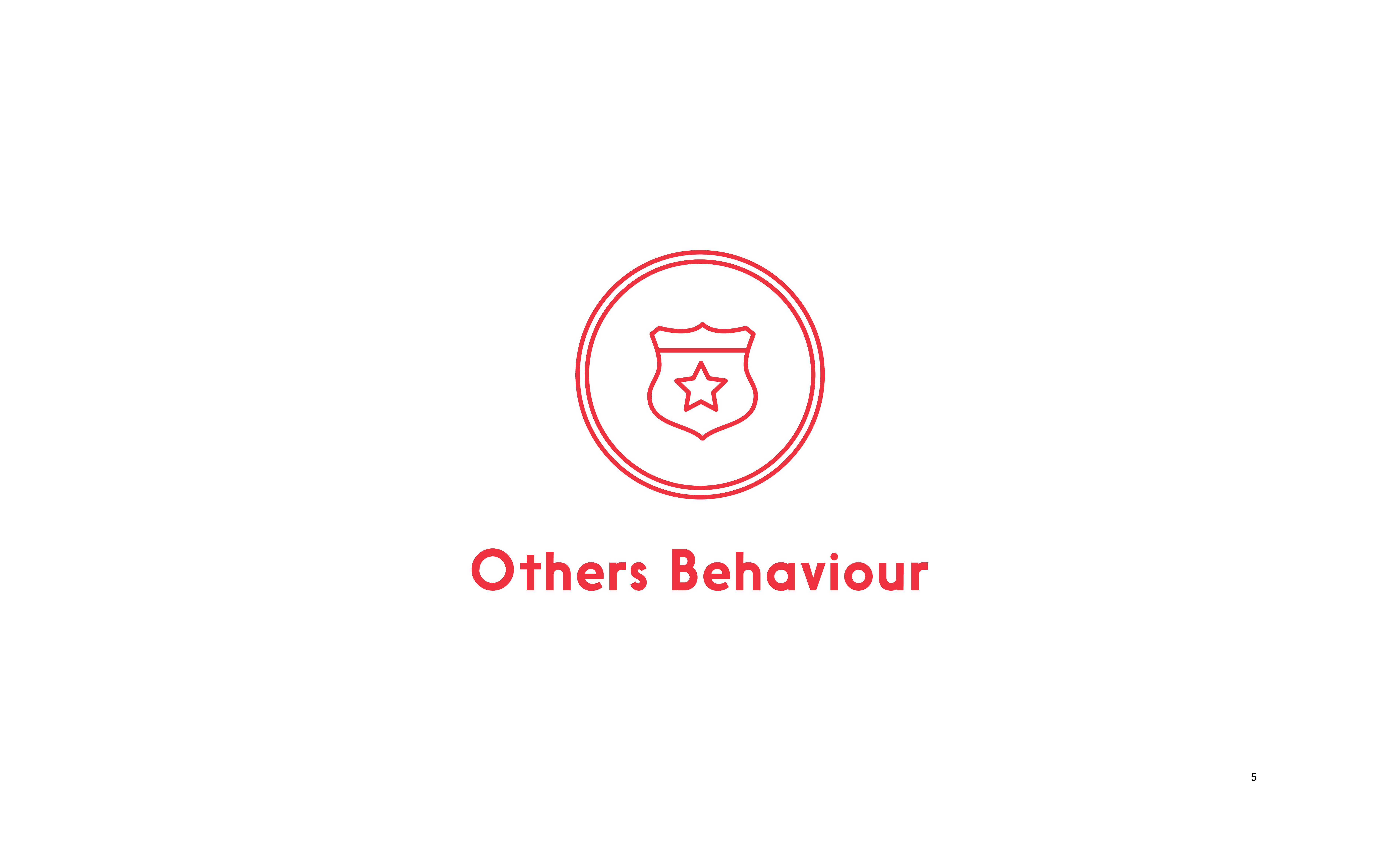
 /
/Others Behaviour
The Internet brings all of the good and the bad in the world into your home. A little awareness and seeking and providing support can make us much safer from bullies, predators and fraudsters online.
 /
/Harassment and Bullying Online
The harmful effects of online bullying makes it unacceptable but it is hard to identify. Recognizing and talking about bullying can be the first step towards stopping it.
 /
/Predators Exist Online
Sexual abuse is a danger online. Younger people are at greater risk of becoming victims. Being aware of and supportively involved in their use of the Internet can provide a positive supervisory influence.
 /
/Online Fraud
There is fraud online. Being aware of common scams can help identify and avoid harm. You can Recognize, Report and Stop Fraud online.
 /
/Getting Support
There are organizations available to help if you think you or someone you know has been a victim of fraud. You can take action if you think you are at risk of fraud, if you have lost a card or have been phished, by calling banks and service providers.
 /
/Others Behaviour
The Internet brings all of the good and the bad in the world into your home. A little awareness and seeking and providing support can make us much safer from bullies, predators and fraudsters online.
-

Others’ behaviour
How much did you learn about Other’s behaviour on the Internet?
Test your knowledge and earn your badge to share
START THE QUIZ
- 1/2
Online bullying is:
Extremely rare
A normal part of growing up
A damaging and unacceptable form of abuse
Easy to identify
next question
- 1/2
Don’t use the Internet or a smartphone is a reasonable response to bullying.
True
False
next question
- 1/2
There is software that can guarantee that your grand/child is safe online.
True
False
next question
- 1/2
Children are safe online unless they go and meet a stranger.
True
False
next question
- 1/2
A scammer might:
Promise a large amount of money
Call you suddenly to help fix your computer
Inform you of winning a prize or lottery
All of the above
next question
- 1/2
Any online relationship that lasts more than a week is probably genuine.
True
False
next question
- 1/2
A safe and traceable way of sending money online is:
Western Union
MoneyGram
Pre-paid cards such as Green Dot
None of the above
next question
- 1/2
Scammers will deliberately send too much money and ask that it be sent back or to another person.
True
False
next question
- 1/2
You should report fraud:
Only if it happens to you, not if it happens to someone you know
Only if it you lose more than $20
Always
If it wasn’t a silly mistake
next question
-
Others’ behaviour
your results
/100Congratulations, you earned your badge!
Share on Facebook
Show the answers
Hide the answers
You are on the right track. Some points need to be clarified. Please review the module and try again.
Restart the quiz
1-Online bullying is:
Extremely rare
A normal part of growing up
A damaging and unacceptable form of abuse
Easy to identify
Many suffer from online harassment and bullying but it is not normal or acceptable. Although the acts, words and online technologies used vary, it is always very harmful.
2-Don’t use the Internet or a smartphone is a reasonable response to bullying.
True
False
It is simply not possible to avoid technology, as it is has become an indispensible tool for communication and socialising. No bully should be able to prevent a person developing skills with technology that benefit their life.
3-There is software that can guarantee that your grand/child is safe online.
True
False
There is software that can form part of your strategy but is no substitution for being an involved and supportive influence in their online development.
4-Children are safe online unless they go and meet a stranger.
True
False
There are many very harmful forms of sexual abuse that can happen over the Internet that do not involve physically meeting.
5-A scammer might:
Promise a large amount of money
Call you suddenly to help fix your computer
Inform you of winning a prize or lottery
All of the above
Scammers often promise a large pay-out or reward but ask for a smaller amount of money upfront. The pay-out doesn’t come and they take the money sent in advance.
6-Any online relationship that lasts more than a week is probably genuine.
True
False
Fraudsters are willing to develop the relationship over an extended period of time. This increases the trust level between the victim and the fraudster, which results in the potential victim usually losing more money.
7-A safe and traceable way of sending money online is:
Western Union
MoneyGram
Pre-paid cards such as Green Dot
None of the above
These methods of payment do not guarantee the identity or traceability of the person receiving the funds. There is no practical way to recover the funds once they have been taken.
8-Scammers will deliberately send too much money and ask that it be sent back or to another person.
True
False
Scammers will send money that is obtained illegally (stolen) or send counterfeit cheques and ask the person to send money to a different account or in a different form.
9-You should report fraud:
Only if it happens to you, not if it happens to someone you know
Only if it you lose more than $20
Always
If it wasn’t a silly mistake
There are no silly mistakes with fraud, fraudsters are experienced and motivated to trick people and everyone is susceptible. You should always report fraud. At the very least it helps the government to properly resource the fight against fraud.
Cheat Sheet
Harassment and bullying online
The harmful effects of online bullying makes it unacceptable but it is hard to identify. Identifying and talking about bullying can be the first step towards stopping it.
DO take online harassment and bullying seriously.
DO be aware of how family members use the Internet.
DO seek information if you are concerned about someone you know.
Predators exist online
Sexual abuse is a danger online. Younger people are at greater risk of becoming victims. Being aware of and supportively involved in their use of the Internet can provide a positive supervisory influence.
DO be an involved in your child’s Internet use.
DO set boundaries for acceptable behaviour.
DO provide a supportive environment that allows them to talk about abuse.
Online Fraud
There is fraud online. Being aware of common scams can help identify and avoid harm. You can Recognize, Report and Stop Fraud online.
DO think critically.
DO be suspicious of urgent requests for money and impossible deals.
DO be confident enough to contact a company yourself to check.
Getting support
There are organisations available to help you if you think you or someone you know has been a victim of fraud. You can take action if you think you are at risk of fraud, if you have lost a card or have been phished by calling banks and service providers.
DO Report fraud to the Canadian Anti-Fraud Centre.
DO contact you bank if you suspect fraud related to your bank or credit card.
Glossary of Terms
Canadian Anti-Fraud Centre (CAFC)
The central agency in Canada that receives online Internet fraud complaints.
Cyberbullying
Willful and repeated harm inflicted through computers, cell phones, and other electronic devices.
Etransfer
A method of sending or receiving money online by Interac.
Money Service Business
A company that allows you to send money to another person somewhere in the world.
PayPal
A company that allows for transfer of funds to other people online.
PIN
Personal Identification Number.
Pop-up ad
An advertisement that opens in a new browser window, often popping up into view.
Scam
A dishonest or deceptive scheme usually for criminal purposes.
Scammer
A person who scams.
Smartphone
A phone that operates much like a computer and is able to browse the Internet and install applications.
Webcam
A video camera that is able to transmit video signal over the Internet.
YouTube
A website (youtube.com) that provides access to video content.
References and Additional Resources
Download SERENE-RISC printable material
Trainers
Trainer Resource – Others’ Behaviour (PDF)
Lesson Plan – Others’ Behaviour (PDF)
Lesson Script – Others’ Behaviour (PDF)
Handout Sheet Answer Key – Others’ Behaviour (PDF)
Resource Sheet – Others’ Behaviour (PDF)
Students
Cheat Sheet – Others’ Behaviour (PDF)
Handout Sheet – Others’ Behaviour (PDF)
Handout Sheet Answer Key – Others’ Behaviour (PDF)
Resource Sheet – Others’ Behaviour (PDF)
Download all the materials for the module “Others’ Behaviour” (PDF)
Additional resources
External Links
Bullying Facts and Solutions
http://www.prevnet.ca/bullying/facts-and-solutions
What is Cyberbullying
http://www.getcybersafe.gc.ca/cnt/cbrbllng/prnts/cbrbllng-en.aspx
Information for Parents and Teachers about Child Safety Online
http://www.thedoorthatsnotlocked.ca/app/en/
Cyber-bullying, crime and pedophilia resources from the SPVM
https://www.spvm.qc.ca/en/jeunesse/ado-Cyberintimidation.asp
Reporting Sexual Issues Online
https://www.cybertip.ca/app/en/report
Report a Cyber Incident
http://www.getcybersafe.gc.ca/cnt/rsrcs/rcvr-scm-en.aspx
Learning to Hate: An Anti-Hate Comic Project
http://projectsomeone.ca/antihatecomicproject
Books
It’s complicated by Danah Boyd
2014, Yale University Press
ISBN: 978-0-300-16631-6